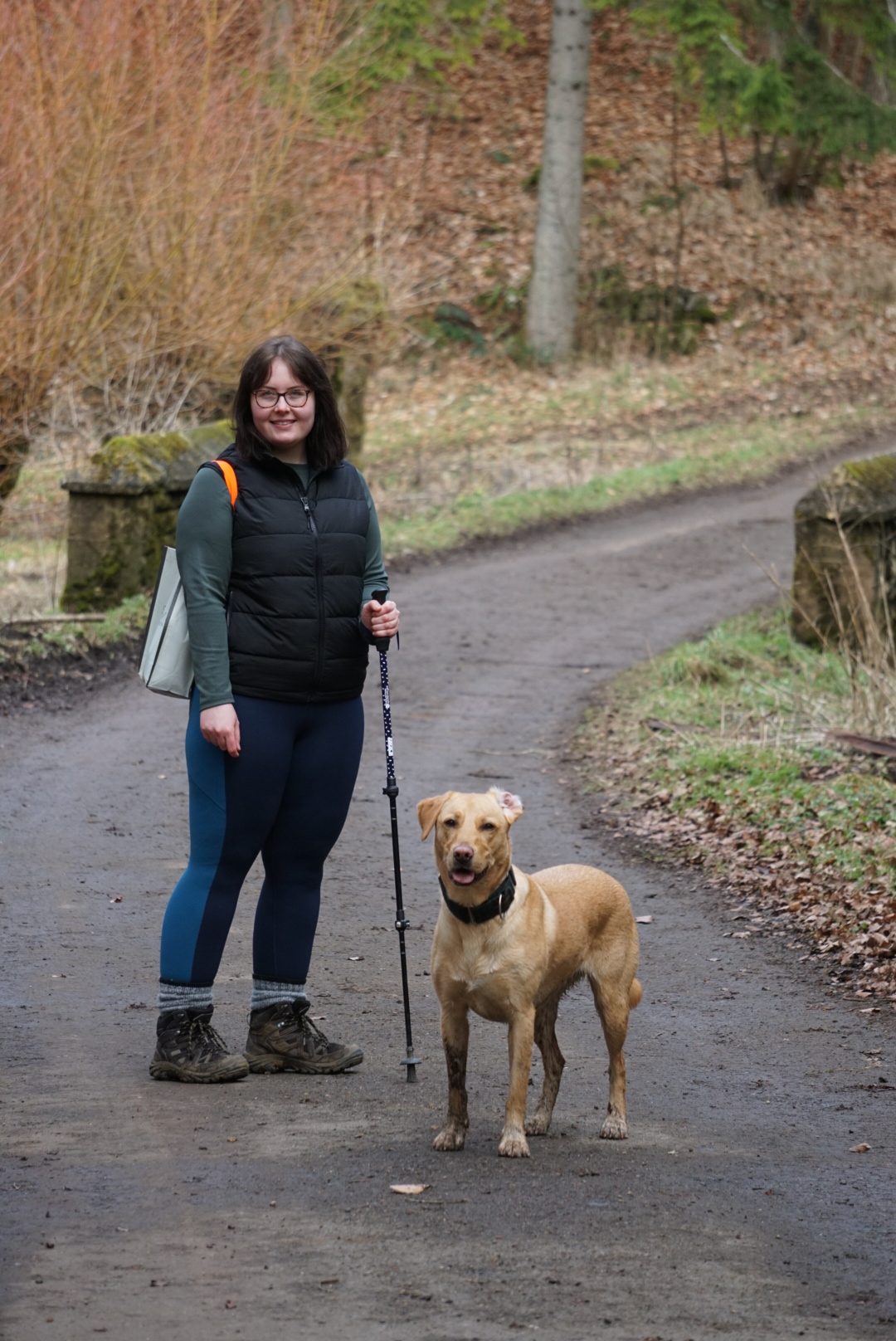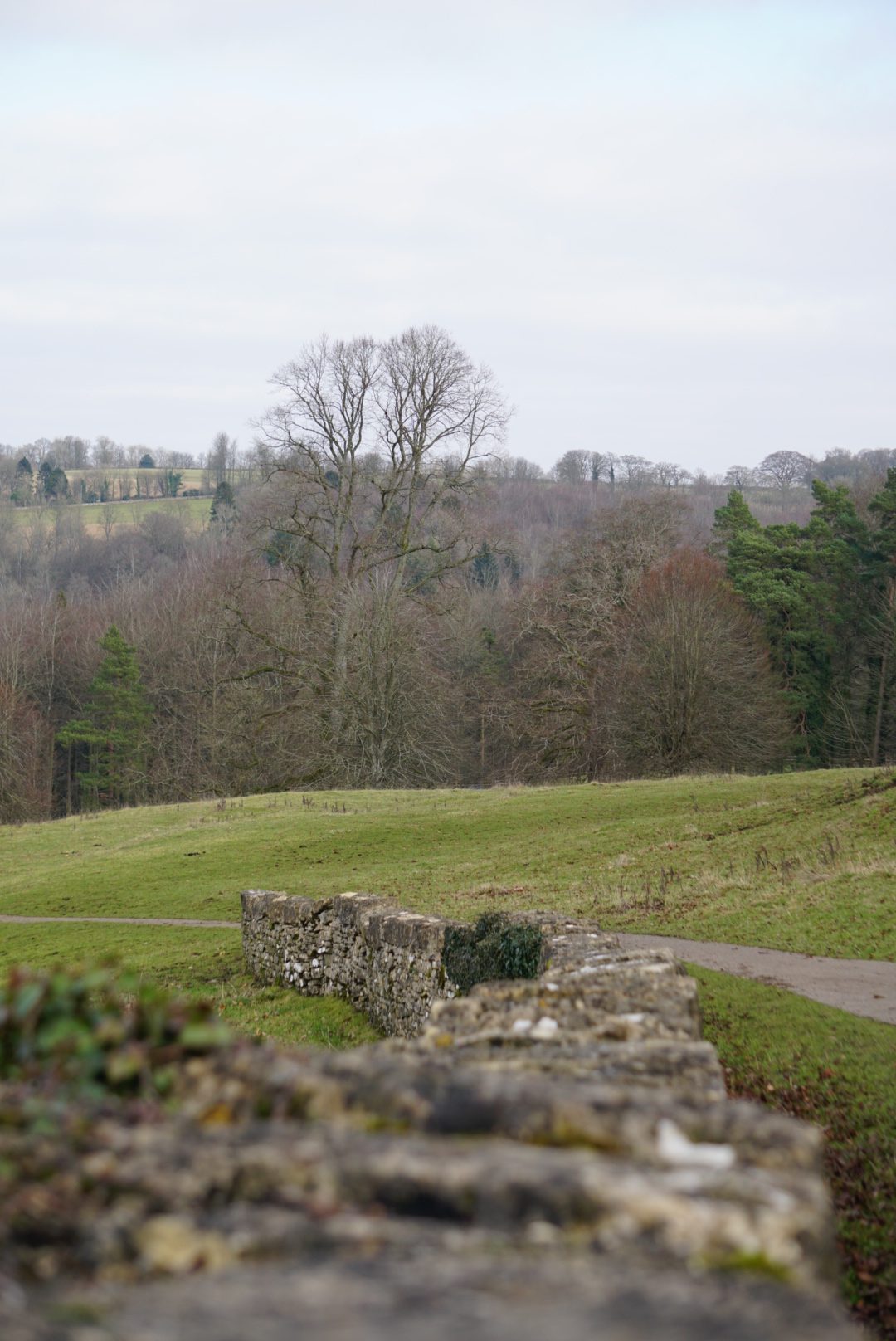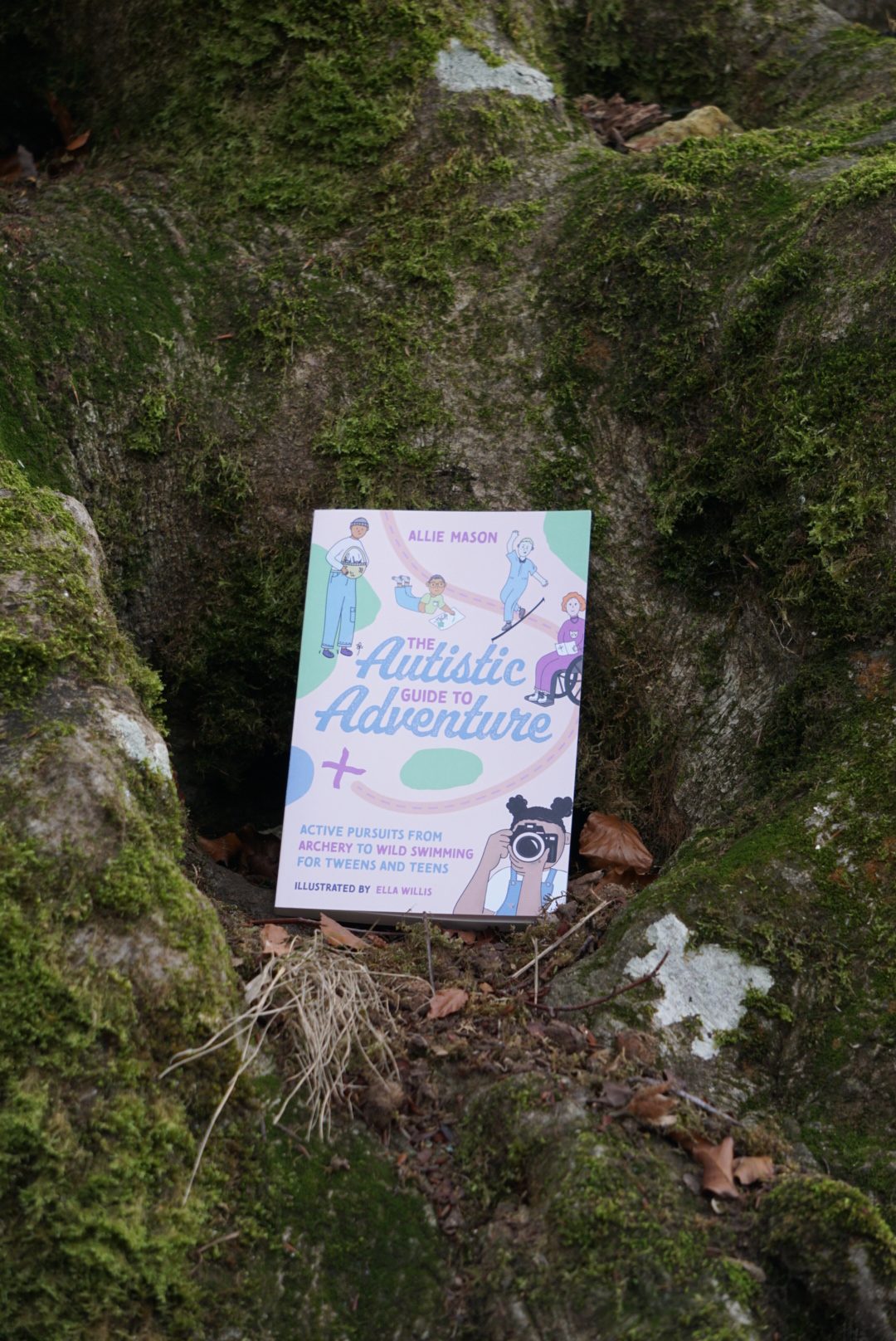Breaking the bias with Allie Mason
16 Mar 2023
16 Mar 2023
This year between 27th March and 2nd April it is World Autism Acceptance Week. At Tyler Grange, we strive to be inclusive and accepting in everything we do. It’s a journey and an education, we’re always trying to learn how we can do better and be better as a group and as individuals.
In light of such an important week in the calendar, we sat down with our Talent Coordinator, Allie Mason, to discuss the role and impact of World Autism Acceptance Week and find out how we can learn, grow awareness, and increase acceptance of autism both in and out of the workplace.
As an autistic person, Allie is the perfect leader on our journey of learning about autism and neurodiversity and how we can all better understand, accommodate and accept every day.

I am the Talent Coordinator at Tyler Grange and I joined in January 2022. I cover the recruitment process from advertising vacancies, right through to onboarding the new people that join us.
I’ve also made the effort to really push diversity and inclusion at Tyler Grange because it’s not something that we had previously focused on before I joined.
I’m now also starting to get involved with our training academy which we’re relaunching later this year. It’s very exciting, lots going on!
I think the first thing that comes to mind is that it is a chance to platform autistic voices and to hear from lived experience.
What resonates with me most about it is the fact that a lot of the time in the discourse around autism and around neurodiversity in general, many of the people who are commenting, are not actually autistic.
That can be really frustrating for those of us within the community because we obviously want to share our lived experiences. We want to share what it’s like to wake up and have to deal with this every single day.
For me, World Autism Acceptance Week is incredibly important because it is dedicated to platforming those voices. I’d love to see that year–round, but we can start with a week for now!

This was something that we all really welcomed within the community when it happened. The reason being because you can be aware of something and still discriminate against it. And I think that’s the big issue, that people can have a baseline idea of what they think autism is but there can still be a lack of understanding.
Changing it to acceptance was important on that journey towards understanding rather than just awareness. It feels like it should be a basic human right for everyone to be simply accepted by society, regardless of mental or physical disability, neurodiversity or anything else.
I sometimes feel like I can overstate the importance of it. At the end of the day, I can’t separate myself from being autistic. I’m going to be autistic for the rest of my life and the idea that although it might be something that I can’t control, it’s something that I’m alienated for is just bonkers.
I think the fact that we’re doing this interview is a great start. I don’t see, especially within our industry, a lot of people talking about neurodiversity and championing their neurodivergent employees.
So that’s really positive. I think just being engaged and asking questions is important too. You don’t know what you don’t know, and you shouldn’t be embarrassed to ask if you don’t understand something.
I know that for a lot of people who aren’t autistic themselves, they might worry about saying something inappropriate or asking a question that accidentally offends somebody.
Everybody has a different opinion on this but for me, I would rather you ask the question. If it’s offensive, I will tell you, and I’ll explain why. But as long as you’re going into it with the right intentions, which is to educate yourself, then I would rather we have that open conversation.

If you look at the diagnostic criteria for autism, the two main traits that they’re looking for are difficulties with social communication and interaction, and what’s called restricted and repetitive behaviours.
Firstly, in the workplace, there’s a lot of social communication and interaction if you are part of a team! I think one of the main ways being autistic affects your work is that those collaborative interactions don’t come easily or naturally, they’re something that you have to learn. And often if you get them wrong, even when you’re not aware, you can be penalised or ostracised for it.
In terms of restricted and repetitive behaviours, one example is stimming, which is short for self-stimulatory behaviour. It’s essentially a repeated physical movement that stimulates your senses. It’s something that I do through all my meetings, I’m doing it right now. I have my tangle toy which I’ll just be turning around in my hands whilst I’m on the meeting – it helps me focus, it helps me concentrate, it helps me not get distracted by all of the other inputs around in the room.
I think the first thing is educating and understanding the different needs that an autistic person might have and that those needs don’t make them an inferior employee. It’s a great idea for anybody who is required to go into the office to have somewhere quiet, a separate room that a person can go to if they do need to decompress. Some people might like to go for a little walk at lunchtime or chat around the water cooler. Likely what an autistic colleague is going to need is somewhere where they can regulate all the sensory input that they’ve been dealing with all morning.
A lot of people have a very strict idea of what business behaviour looks like and we still uphold outdated notions around how a professional person presents themselves. Using a fidget toy or noise cancelling headphones or sunglasses to regulate the sensory input in the office for example is often looked down on, called out and misunderstood.
I think it’s something that has to be driven by individuals.
An organisation can change how they interview for example, but if the actual boots on the ground who are involved in those processes are not engaged with that, then you’re not going to get anywhere.
We need to stop expecting outdated standards from people that have nothing to do with how well they can do their job.
What I have really noticed over the past year of being here is how compassionate my colleagues are about my support needs. They will go out of their way to accommodate me. It’s so nice not to have to always be the person advocating for yourself. It can be very draining when you constantly have to be the person saying, ‘Can we do it like this? Can we do it like that? Can I slightly inconvenience you so that I don’t have a meltdown?’
I think more generally Tyler Grange has been really good at just learning from experiences. If we’ve been in a situation where it hasn’t been very supportive of me, I’ve been able to say, ‘this is why it hasn’t worked. Please, can we do it like this next time?’ Even if we don’t realise what’s needed to start with, you build on what’s happened and learn from it.
And I think, where I would say that TG can improve, just like many places can, is just start taking that initiative and putting things in place before people have to ask for them. Before I joined last January, I don’t really think they had anybody within the business who had disclosed any kind of neurodiversity or disability, or certainly there was nobody who was kind of rabbiting on about it as much as I do. It’s great that I can advocate for myself and that I can advocate for other people. But I don’t have every disability under the sun. There are going to be some people who need support that I would never think of and I can’t advocate for because I’m not aware of them. As an individual, I’m always trying to learn more about other people and their support needs. And I think that needs to happen at a business level as well.

My book is The Autistic Guide to Adventure.
It is 35 different activities set out in a handbook format, so people can dip in and out depending on what activity they want to do. We cover activities from archery to foraging and wild swimming, we’ve got the lot.
It’s aimed at secondary school-aged children but I think it will be accessible to adults as well, including those who work to support anybody who’s autistic, whether that be in a school setting, as a coach or as a parent. I really hope that by sharing what I’ve learned since being diagnosed about how to access sport and how to make it something that I enjoy, we’ll just get more autistic kids outside, leading active lifestyles and genuinely improving their well-being that way.
Working at TG really helped with that in the sense that we recently moved to the four-day week. It meant that I had that extra day to do the editing, plan the launch and more.
Everybody at TG has been so supportive, it’s been really nice when I show up on a Monday morning to be able to talk about the book and for people to be interested in it and want to know more.
I think what needs to happen in any sector is that the conversation about inclusion needs to happen on day one. Often it’s happening on day 45, or day 100, or not at all. People get so far down the line and then they suddenly realise, what they’ve created, isn’t fully inclusive, and isn’t fully accessible. Some people are going to have issues with being a part of this and that could be avoided with a bottom-up rather than a top-down approach. Just make it part of the process.
One of the things that I would love to highlight is that in the autistic community, we’re trying to move the coverage of autism away from being just about its deficits and difficulties.
The conversation is dominated by the things that you struggle with, and the behaviours that are deemed ‘odd’. I think there is a whole other side of having a different neurotype which means that, although I do not buy into the superpower narrative at all, there are these strengths and talents, things that people are really good at, because of the way that their brain works.
I think there needs to be a balanced conversation and less of a focus on all the bad stuff. Because there’s a lot of difficult stuff about being autistic. There’s a lot of stuff we have to deal with and overcome. But there are also really positive things too. I think what’s really frustrating is the idea that either everybody who is autistic has a superpower, or that everybody who’s autistic can’t function properly.
Let’s balance that conversation.
I mean, everybody has their strengths and weaknesses, everybody has stuff they’re really good at and stuff that they struggle with. I think that there is a tendency to make autism and other neurodevelopmental conditions very black and white. They’re not like that, it’s a spectrum!
We’d like to say a massive thank you to Allie for taking the time to talk to us about World Autism Acceptance Week and what it means to her. (We’d also like to give thanks to Chris Moore for taking these wonderful pictures of Allie too!)
Allie has given us a fantastic opportunity to learn from lived experience and get some valuable education and insights that we can build on for the future.
You can find out more about World Autism Acceptance Week here.
There’s lots of information about ways to raise money, advocate and educate yourself too.
To find out more about Allie’s book: The Autistic Guide to Adventure, click here, where you can also pre-order a copy.
There are also 2 launch events you can go to on Saturday 25th March in Cheltenham Waterstones’s at 4.30pm and Saturday 8th April in Newcastle Waterstone’s at 2pm.
The book is published on the 21st of March – we can’t wait to get our hands on a copy!